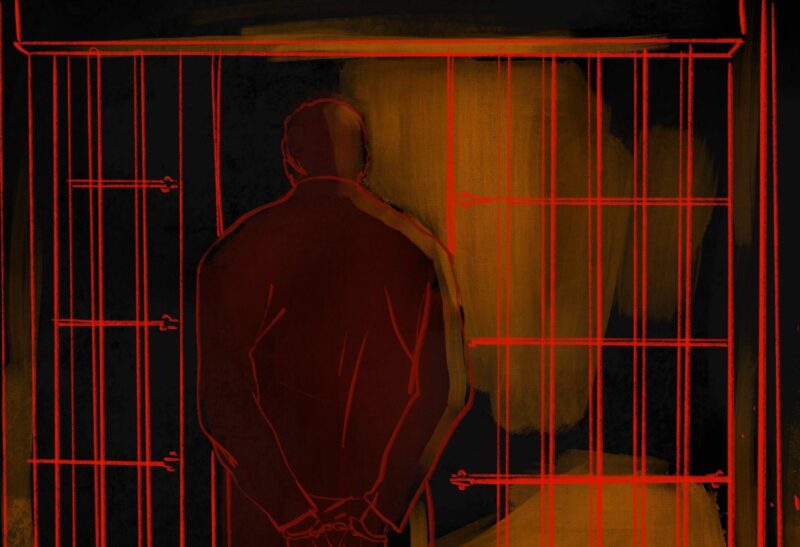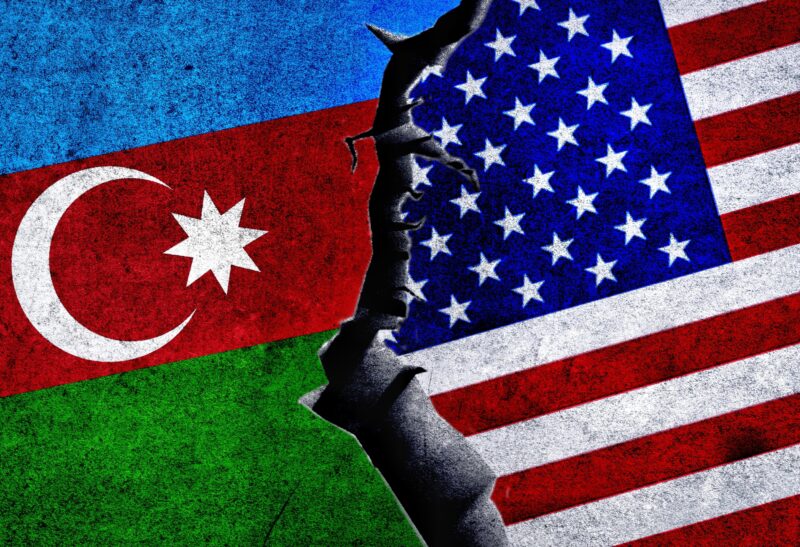
Politics has long been a family affair in Azerbaijan, and, so, this July, when President Ilham Aliyev proposed lowering or scrapping the age-requirements to run for parliament and the presidency, his motivation, for many government critics, was straightforward — to launch the political career of his only son, 19-year-old Heydar Aliyev.
The least known of the three Aliyev children, Heydar currently is a fourth-year student with no established taste for politics. But in patriarchal Azerbaijan, that matters little. As the ruling family’s male heir, he is expected, like his father before him, to continue the political dynasty founded by his namesake and grandfather, the late President Heydar Aliyev.
His mother, 52-year-old First Lady Mehriban Aliyeva, chairperson of the influential Heydar Aliyev Foundation, has sat in parliament since 2005, and serves as deputy chairperson of the New Azerbaijan Party (YAP), headed by President Aliyev. His sisters, 31-year-old Leyla Aliyeva and 27-year-old Arzu Aliyeva, also already have public roles.
Come September 26, when President Aliyev’s 29 proposed constitutional amendments get put to a public vote, their little brother could have two possible options to make his own political contribution, as well.
One change will reduce the minimum age for parliamentary candidates from 25 to a mere 18 years old. Another will remove the requirement that presidential candidates be at least 18 years old.
And a third would prolong the president’s five-year term to seven years; thereby placing both presidential elections and parliamentary elections in 2020, when Heydar is 22-23 years old.
The amendments, largely expected to pass, can become law with the support of just 25 percent of Azerbaijan’s roughly 5.12 million registered voters.
As yet, neither the president nor his aides have named Heydar Aliyev as part of the reason for the lower age-requirements.
Rather, the government and its supporters maintain the changes are all about providing opportunities for “literate, prospective young people” as part of Azerbaijan’s “state-building” reforms.
“Shah Ismail Khatai was 14, Alexander the Great was 20 and Napoleon even younger when they came to power,” observed YAP Deputy Chairperson Ali Ahmadov in a July 28 interview with parliament’s official newspaper, Azerbaijan. “It is impossible to imagine world history without them.”
So far, nothing suggests that the same will be said of the young Heydar Aliyev.
His most notable achievement to date was in 2013, when the education ministry awarded him one of 238 gold medals given to high-schoolers for scholastic achievement.
His only brush with international fame came in 2010, when The Washington Post revealed that, as an 11-year-old, he allegedly had spent $44 million to purchase nine mansions in Dubai.
He currently studies at Baku’s ADA University, a state institution that focuses on government and international affairs. Its founder and rector is Aliyev’s maternal great-uncle, Deputy Foreign Minister Hafiz Pashayev.
Nonetheless, the image-making has already begun.
In 2011, pro – government media started promoting Heydar Aliyev as a modest, quick-witted youngster, disseminating a comment from Aliyev’s English-language teacher, Fransiz Manto, to the opposition newspaper Yeni Musavat that he was “a good example for the others” in his class.
Three years later, his first year in university occasioned his “first interview,” while his first vote in 2015 also made national news.
Most recently, pro-government media have promoted a September 17 regional meeting with President Aliyev at which one 70-year-old woman expressed the desire to see young Heydar as president after his 54-year-old father has served “90 years.”
For that reason, opposition members claim that the reduction and removal of age-limits for parliament and the presidency have one goal in mind: “. . . to get the youngest member of the [Aliyev] family into politics,” asserted Gozal Bayramli, deputy chairperson of the Azerbaijani Popular Front Party.
YAP parliamentarian Nizami Jafarov, however, sees nothing wrong with that. He recently underlined to RFE/RL’s Azerbaijani service that the Aliyevs are a talented family and can, indeed, be elected to parliament.
“Potential opportunities should be established for youth as well,” said Jafarov.
One prominent election monitor, however, countered that no “public demand” exists for changing the age-requirement for parliamentary or presidential candidates.
“This unexpected suggestion remains unclear and disproportionate . . . “ and could lead to “an interesting scenario, like having youth candidates from the ruling party in early parliamentary elections,” commented Anar Mammadli, head of the Election Monitoring and Democracy Studies Center.
The presidential administration could not be reached for comment.
Not all Azerbaijani politicians, though, believe that parliament – and, conceivably, the presidency – should be open to teenagers.
“There were three-year-old kids among the Chinese emperors as well,” scoffed Sardar Calaloglu, chairperson of the opposition Azerbaijan Democratic Party. “They did not posess the ability to control the state, but their trustees did.These changes pave the way toward Azerbaijan being controlled by trustees.”
The Council of Europe’s
Venice Commission
, which reviews member-states’ constitutional changes, earlier this week stated that it saw no problem “[i]n principle” with making the voting age the minimum requirement for parliamentary candidates.
It took issue, though, with eliminating an age-minimum for the office of president, saying that the move “may negatively affect the overall quality of the State governance in the country.”
The Commission condemned the overall proposed amendments, warning that they will give the head of state “unbelievable” authority.Under the changes, President Aliyev would not only gain another two years in office, but also acquire the power to dismiss parliament and to declare “extraordinary” presidential elections.
A First Vice-President and Vice-Presidents, appointed by the president, will outrank the prime minister.
The government has objected that the Venice Commission’s findings are “hasty” and “a political order” from unidentified members of the Parliamentary Assembly of the Council of Europe.
Aim has also been taken at the opposition, which attracted hundreds of protesters to a September 17 Baku rally against the referendum.
Those who resist lowering Azerbaijan’s minimum-age requirement for MPs “forget that the age limit for parliament candidates in countries like Germany and Hungary is 18 and it is 21 in the Czech Republic . . .”noted Hajibay Haydarli, editor of the pro-government news site Azxeber.com.
Some leading opposition members, however, see no parallel with Azerbaijan.
“A government which does not want to replace an 80-year-old prime minister [Artur Rasizade, 81, who has held the office for nearly 20 years – ed] seems hardly likely to bring the young generation into parliament,”objected Musavat Party Deputy Chairperson Elman Fattah.
Azerbaijani law already defines 25-year-olds as young people, so the government’s youth-focused rationale for letting 18-year-olds become MPs is “illogical,” concurred Azar Gasimli, a board member of the opposition movement Republican Alternative.
As yet, apart from the mobilization of pro-government youth groups for the referendum, no public sign exists that these proposed changes have inspired many ordinary young Azerbaijanis to venture into politics.
Ultimately, said youth activist Rashadat Akhundov, the key to political reform in Azerbaijan lies elsewhere.
“The Milli Majlis must be formed through free elections,” stressed Akhundov, a member of the NIDA Civic Movement, an outspoken government critic. “Increasing the number of youth will not change reality if there are no free elections.”
***
Editor’s Note: Leyla Mustafayeva was a Musavat Party candidate for parliament in 2010. She charged in a court case that the results had been fixed to ensure her defeat. The ruling went against her. She now works as a freelance journalist.



